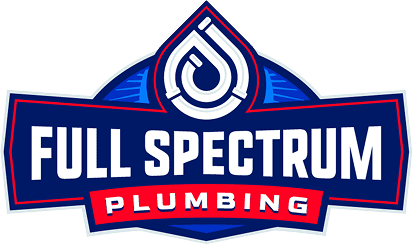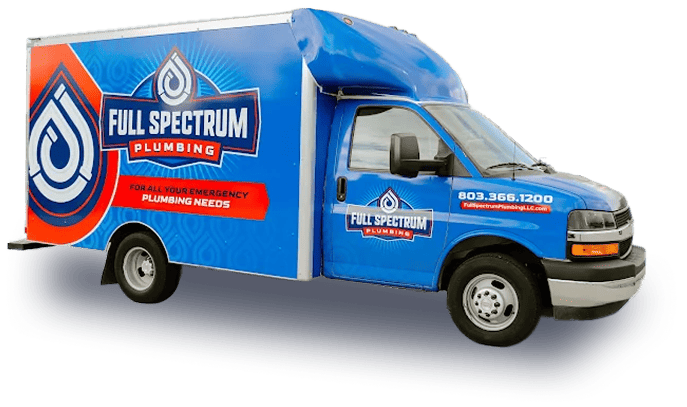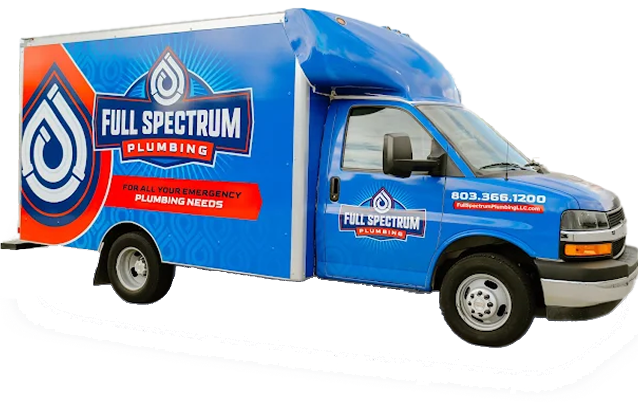Proudly Serving Rock Hill and Surrounding Areas
Scale Buildup vs. Corrosion: Knowing the Difference and Their Consequences

Scale Buildup vs. Corrosion: Knowing the Difference and Their Consequences
When it comes to plumbing and water appliances, understanding the differences between scale buildup and corrosion is crucial for maintaining a healthy system.
At Full Spectrum Plumbing Services, we often encounter confusion regarding these two phenomena. This blog will clarify the distinctions and discuss their impacts, causes, and how to identify them.
What’s The Impact Of Scale Buildup Vs. Corrosion?
Scale Buildup: Scale buildup is primarily caused by hard water, which contains high levels of minerals like calcium and magnesium. Over time, these minerals deposit on surfaces, forming a hard, chalky layer. This can occur in pipes, boilers, and heating elements.
The consequences of scale buildup include reduced water flow, lower heating efficiency, and increased energy costs. In severe cases, it can lead to blockages and the premature failure of appliances.
Corrosion: Corrosion, on the other hand, is a chemical process where metals deteriorate due to reactions with their environment, often involving oxygen and moisture. It leads to the weakening of metal parts, pipe leaks, water discoloration, and potential contamination. Corrosion can significantly shorten the lifespan of plumbing systems and appliances.
How To Identify Scale Buildup In Appliances
Identifying scale buildup is relatively straightforward. You might notice a white, chalky substance on faucets, showerheads, or inside kettles. In appliances like water heaters, the signs are less visible but can include unusual noises due to scales on the heating elements, reduced efficiency, or longer heating times. If your water pressure seems lower than usual, it could also indicate scale buildup in the pipes.
Can Corrosion Damage Be Mistaken For Scale?
The confusion between corrosion and scale buildup is common, particularly because both can manifest similarly on your plumbing fixtures and appliances. In the early stages, corrosion might just appear as a slight discoloration or roughness on metal surfaces, which can easily be mistaken for the beginnings of scale buildup. However, as corrosion progresses, it tends to cause more noticeable and destructive changes.
Corrosion is a chemical reaction that occurs when a metal interacts with elements in its environment, such as oxygen and water. This process can lead to the formation of oxides, often seen as rust on iron or steel.
The appearance of corrosion can vary; for instance, copper pipes might develop greenish-blue stains due to the formation of copper oxide. You might observe pits or crevices forming on the surface of stainless steel. This pitting is a clear sign of corrosion and is distinct from the smoother, layer-like appearance of scale buildup.
Another key difference lies in the texture and integrity of the affected area. The scale feels hard and chalky and usually can be scraped off, leaving the underlying surface intact. Corrosion, on the other hand, results in the deterioration of the metal itself.
Prolonged corrosion can cause significant thinning of pipes, leading to weaknesses and potential leaks. It’s a more insidious problem because it can compromise the structural integrity of your plumbing, leading to more severe and costly damage over time.
Therefore, while they may appear similar at first glance, corrosion, and scale are fundamentally different issues, each requiring a unique approach to address and resolve effectively. Recognizing these signs and understanding their implications is crucial for maintaining the health and longevity of your plumbing systems.
What Causes Scale Buildup In Plumbing Systems?
Scale buildup in plumbing systems is predominantly attributed to hard water rich in dissolved minerals like calcium and magnesium. As water percolates through soil and rock, it absorbs these minerals, which travel along with the water into your plumbing systems.
When this mineral-laden water is heated, as in a boiler or a water heater, or when it evaporates from surfaces like taps and showerheads, the minerals crystallize and deposit as scale.
The chemistry behind scale formation is driven by temperature and concentration. Hot water can hold more dissolved minerals than cold water. However, as the water is heated, its ability to dissolve minerals decreases, causing the minerals to precipitate out and form scale.
This is why appliances that heat water, like kettles, boilers, and hot water pipes, are more prone to scale buildup. Additionally, areas where water sits or evaporates slowly, like in a water heater tank or on the surface of fixtures, are common sites for scale accumulation.
The water’s hardness level influences the rate at which scale builds up – the higher the mineral content, the more scale will form. Additionally, higher temperatures accelerate the process, making appliances operating at higher temperatures more susceptible to rapid scale buildup.
Over time, this can lead to decreased efficiency, increased energy costs, and the potential for malfunctions or damages if not addressed. Understanding and managing scale buildup is therefore crucial in areas with hard water to maintain the health and efficiency of plumbing systems.
Full Spectrum Plumbing Services: Your Solution to Scale and Corrosion
At Full Spectrum Plumbing Services, we specialize in diagnosing and resolving issues related to scale buildup and corrosion in your plumbing systems. Our experienced team understands the unique challenges posed by these problems and has the expertise to address them effectively.
Why Choose Full Spectrum Plumbing Services?
- Expert Diagnosis: Our skilled technicians can accurately differentiate between scale buildup and corrosion, ensuring the right treatment is applied.
- Advanced Solutions: We use state-of-the-art equipment and techniques to remove scale buildup and treat corrosion, prolonging the life of your plumbing systems.
- Customized Treatment Plans: Understanding that each home is unique, we tailor our services to suit your specific needs, whether it’s a one-time fix or regular maintenance.
- Preventative Measures: Beyond fixing the current issue, we offer advice and solutions to prevent future occurrences, saving you time and money in the long run.
Frequently Asked Questions
Q: How much does treating scale buildup or corrosion in plumbing systems cost?
A: The cost can vary depending on the severity and location of the issue—generally, services for treating scale and corrosion range from $150 to $500.
Q: How often should my plumbing system be checked for scale and corrosion?
A: We recommend a yearly inspection, especially if you live in an area with hard water.
Q: Can scale buildup and corrosion be completely prevented?
A: While it can be challenging to prevent entirely, regular maintenance and the use of water softeners can significantly reduce the occurrence.
Q: Do you provide emergency services for sudden plumbing failures?
A: We offer emergency plumbing services to address urgent issues promptly.
Your Plumbing Health, Our Priority
Don’t let scale buildup or corrosion take a toll on your plumbing systems. Trust Full Spectrum Plumbing Services for comprehensive and effective solutions. Our team is dedicated to ensuring your plumbing operates efficiently and lasts longer.
Contact us today for an inspection, treatment, or advice on managing scale and corrosion. We’re here to provide you with top-quality service and peace of mind.
Recent Posts
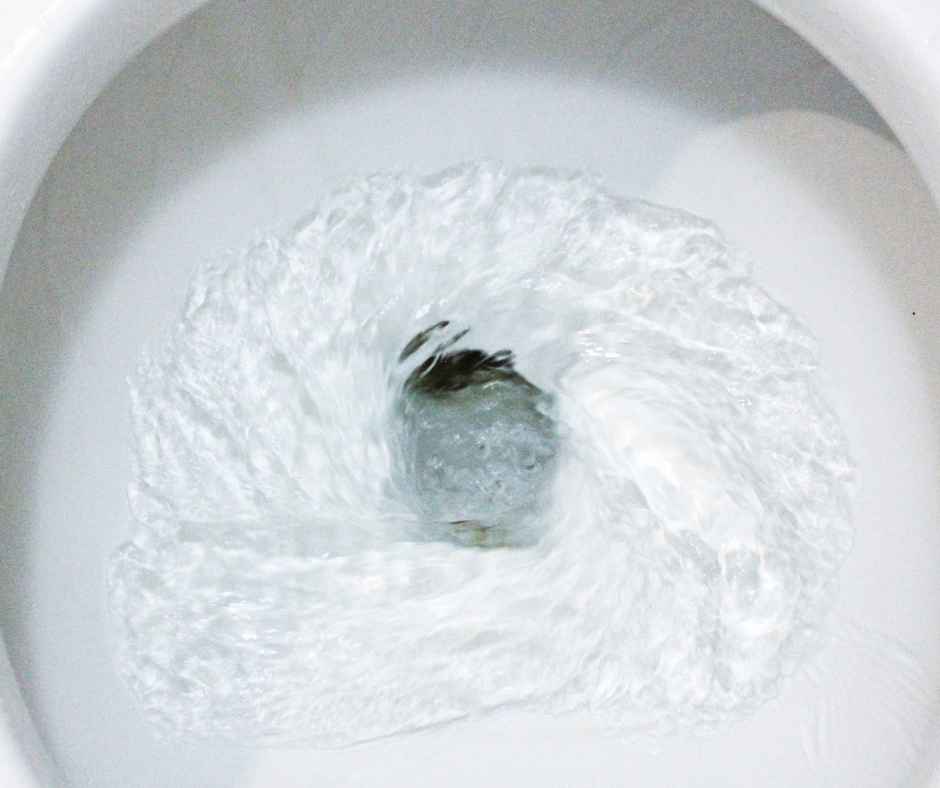
Why Ignoring Small Plumbing Noises Can Lead to Major Damage in Rock Hill Homes
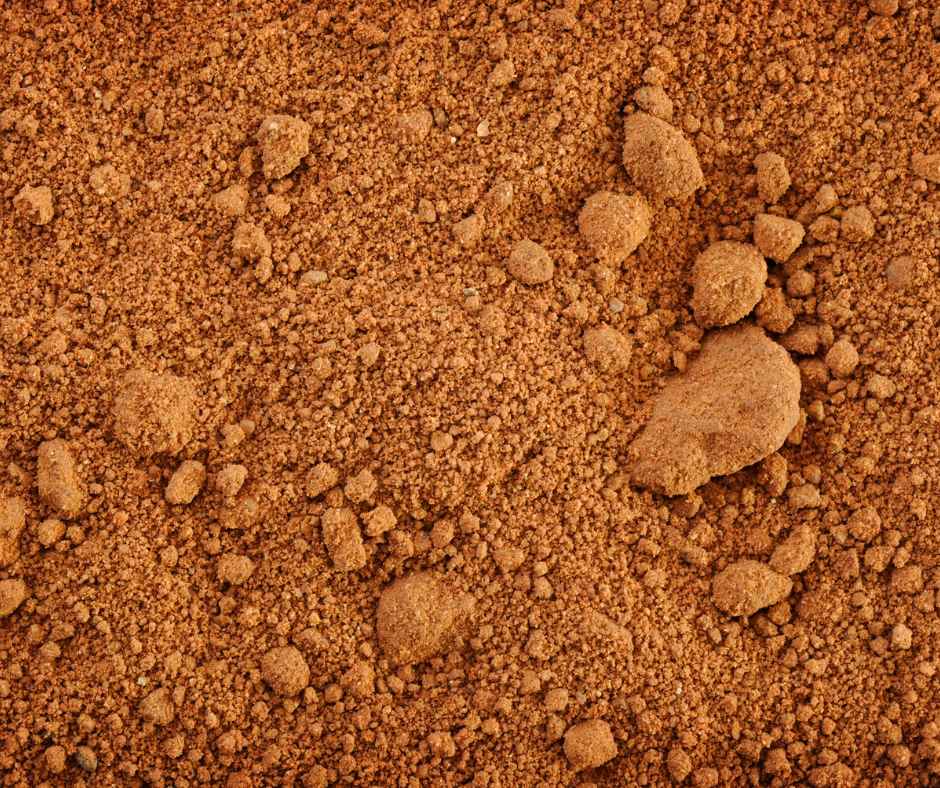
The Hidden Effects of Carolina Clay Soil on Your Sewer Line

Common Plumbing Problems Charlotte Homeowners Face Each Year
Have a Question?
